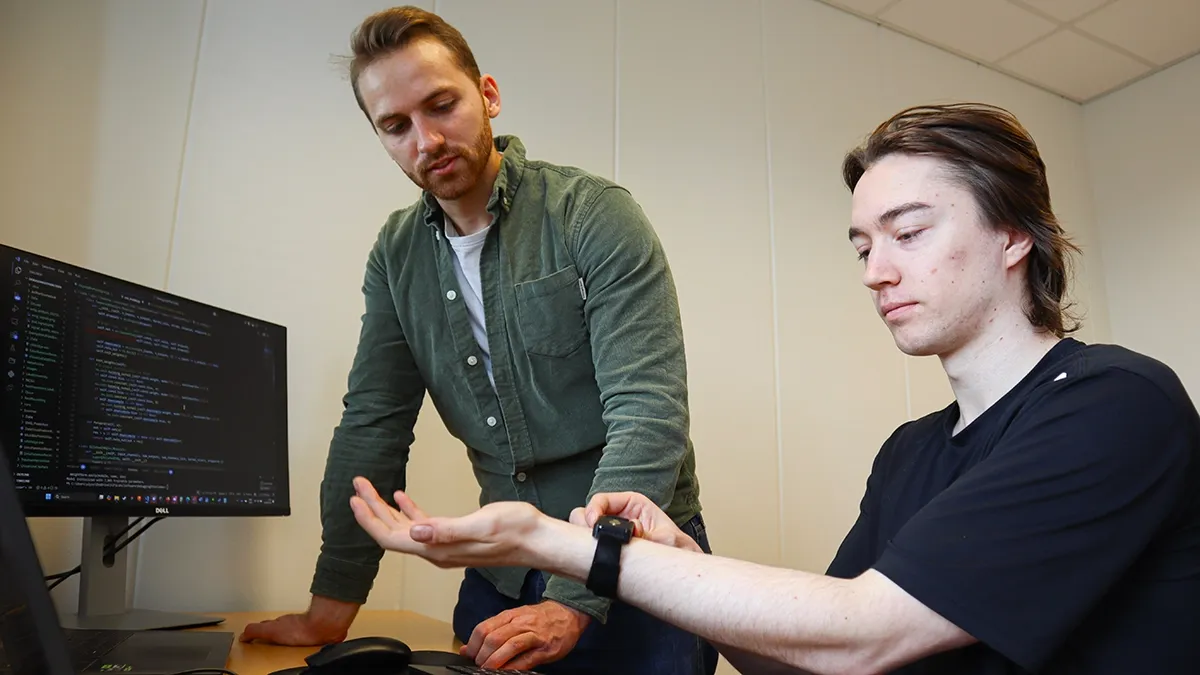Leonard has recently completed a master's degree in Computer Science, and the summer project gives him the opportunity to apply the skills from his field of study in Cybernetics and Autonomous Systems in practice. In the first few weeks, he has been working on data collection and data processing. The project he is participating in is innovative and aims to develop a non-invasive medical technology system that, in the long term, can replace today's manual monitoring of vital signs.
About the research project
The summer project is part of a larger research project led by supervisor Ulysse C?té-Allard. The goal is to develop and validate an innovative system for continuous and automated patient monitoring. It aims to reduce the need for manual measurements of vital signs, which are currently performed by healthcare personnel, while simultaneously improving patient safety. The project is a collaboration between the University of Oslo, the Intervention Centre at Oslo University Hospital, and McGill University Health Centre in Canada.
The monitoring of vital signs will take place using a sensor unit that is attached to the arm, similar to a smart watch. The unit itself already exists, further work is required to develop a reliable AI?model to accurately interpret and analyze its data. This is something Leonard will continue to work on in the coming weeks. Among other things, his method must effectively account for differences between individuals, as well as reliably handle noisy or inconsistent data typically encountered in real-world conditions.
Interdisciplinary experience and international research collaboration
The summer project combines technology and medicine, providing valuable interdisciplinary experience. In addition, he gains practical experience by working in an international research team through collaboration with PhD candidate Rémi Dagenais from McGill, who is doing a research visit at UiO this summer.

- I am grateful for the opportunity to contribute to the development of a solution that the research project can build upon, as well as for the experiences I am gaining through the summer project," says Leonard Sandl?kk Schiller.
A popular initiative among students
UiO:Life Science offers summer projects for students for the seventh year in a row. For a period of six weeks, students receive a scholarship to contribute to a research project. To be accepted as a summer student, candidates must apply early as the quota fills up quickly. Then, a matchmaking seminar is organized where the student and the project supervisor rank each other. Approximately half of the applicants are offered a summer project.
The aim of the summer research projects is to provide the students with practical experience of real research that addresses a social challenge within health or environment. It is also desirable that the projects provide the students with insight into interdisciplinary research.
Read more about summer research projects for students
